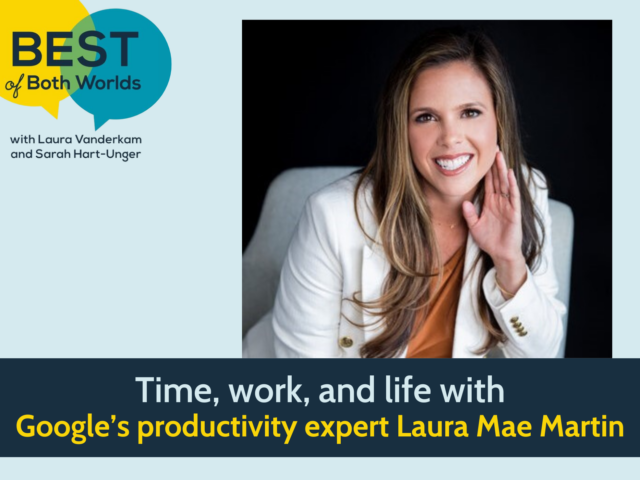Corporate life can feature an overwhelming volume of emails and meetings. How can you stay on top of things and get the substance of your job done?
In today’s episode of Best of Both Worlds, Sarah interviews Laura Mae Martin about her new book, Uptime, and about her work as Google’s in-house productivity expert. She shares tips and strategies for staying productive. They chat meetings, setting priorities, task and calendar management, family life, and more.
In the Q&A we tackle a tricky question from a listener who wonders how to balance vacations with nuclear family vs. extended family requests. If you’ve only got limited PTO, how should you split it between regular family vacations and trips to visit relatives?
Please give the episode a listen. As always we welcome ratings and reviews! You can also come join our Patreon community where we discuss topics related to work and life more at length. Recent threads have included one on career change and one on marathon training. We’re having a lot of fun and would love to see you there! Membership is $9/month.

Loved it and just bought the book online! Looking forward to reading from another working mom productivity expert.
@Megan – glad you liked it!
I really loved this interview, it helped me think about an admin role I’m taking on from the next academic year and how I can structure it to prevent it from taking over my day.
Also, yes to the short keys. My summer project is to set them up for marking student essays. Right now, I copy and paste from a template but it would be faster/easier with short keys.
@Cb- glad you liked it! I haven’t gotten my head around using any shortcuts yet…but hey.